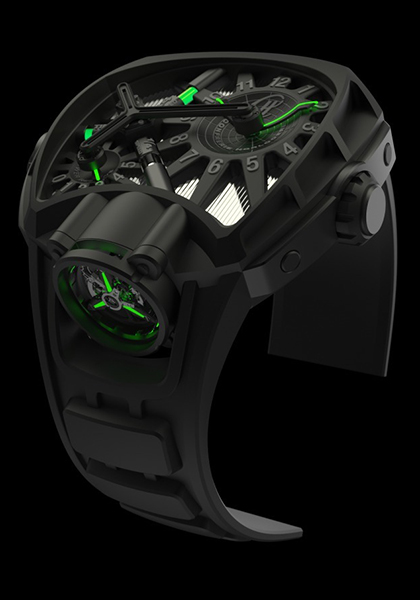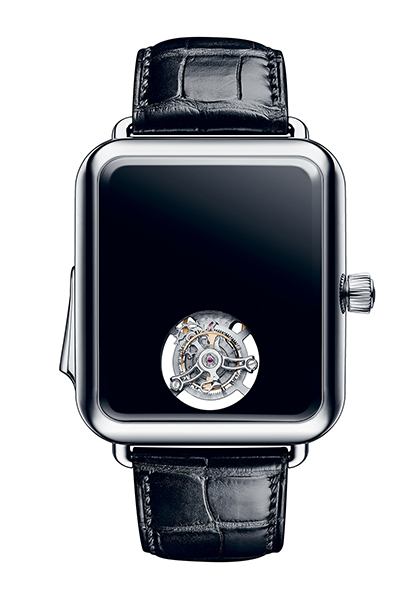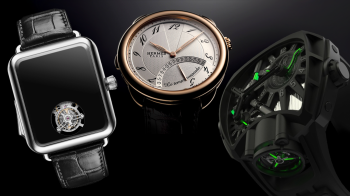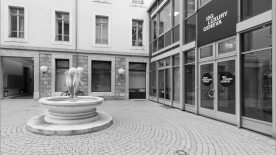Sometime over the last weekend, the clocks over here changed and I didn’t even realise. The new work-from-home normal doesn’t require getting dressed properly, let alone putting on a watch. Connected objects — laptops, tablets, phones — update automatically, so I don’t know about you, but I only noticed something was different when my oven clock told me it was too early to be making dinner. (For a second, I thought, this is it. I get hungry at 5:30 now. Old age is upon me. Thank God it was only for a second.)
Why does daylight saving time continue to exist? In order to crowd the dials of our world-time watches? In previous years, when Baselworld took place, there was always one morning where people either showed up at the wrong time for appointments or didn’t show up at all, because they forgot about the time shift. (People showed up at the wrong time or not at all on other days too, but that had more to do with the previous evening’s social activity.)
I did a bit of research (read: Google) and it turns out daylight saving time originated in the early 20th century, when people in decision-making roles wanted to have more daylight during working hours and save energy. This honestly makes no sense to me, as the energy requirements are merely transferred to the home environment instead. In fact, it possibly consumed even more energy, since lighting a communal work environment takes less energy than lighting hundreds of homes. There is a capitalist vs socialist argument buried somewhere in this discussion, but this isn’t the place to have it. I merely wanted to express displeasure with daylight saving time in general.
During this period of time, which feels oddly disconnected with reality even as outward exigencies are directly impacting our daily lives, I wonder if a horological solution exists. I’m not suggesting that watchmaking will magically erase all sickness and disease from the world, but the right kind of watch can put us in the mindset to better handle our current situation.

“I wish this could all be over quickly,” a friend glumly remarked to me yesterday, owner of a US-based retailer known for their strong history with Hublot. I was tempted to remind him of the high-concept La Clé du Temps tourbillon watch by Hublot, which allowed its wearer to speed up or slow down the display of time on its dial, while a hidden mechanism kept track of the actual time and could revert the time display back to accurate hour and minute indications. I didn’t talk about concept watches in the end, and chose instead to commiserate, like any friend with a normal level of social sensitivity would.

Think also about the Hermès Arceau Le Temps Suspendu, which goes a step further and actually obscures the time display altogether, freezing the hands in a neutral configuration for as long as you like while internally keeping track of the elapsed time in order to return the hands to their proper positions when you choose to deactivate the suspended time function. I actually assembled one of those movements, way back in 2012, as part of my summer apprenticeship with Genevois movement thinktank Agenhor. All of you out there who own one of these watches, please relax. The movement I assembled was a training movement; it didn’t go into any of your timepieces, okay.

Sometimes, you might not want to know what time it is at all. The H. Moser & Cie Swiss Alp Concept Black Tourbillon Minute Repeater is the watch for you. The only indication you have that time is actually elapsing at a normal rate (rather than oozing past you like hot bitumen while you figure out what shows you haven’t already watched on Netflix) is the whirling tourbillon. No markers, no hands on the Swiss Alp Concept Black, just a Vantablack dial that evokes the abyss of time ahead of you. Appropriately, it’s the euphonious chime of the minute repeater that roots you back in time-based reality. Music has many advantages, one of which, according to Shakespeare, is soothing the savage beast of an unhinged, confined id. Perhaps that’s what my techno-loving neighbour is trying to do, and I’m really glad he’s making the effort to stay soothed in these stressful times. I just wish he’d choose to do it at a volume that doesn’t pierce the walls and the eardrums.
Stay sane, WorldTempus family.







